Drip Roasters
Brazil Santa Clara
Brazil Santa Clara
The coffee we ship is usually roasted within the last two weeks.
This espresso roast is beautifully round and balanced. Milk chocolate and hazelnut dominate the flavor profile, alongside a subtle orange note. All of this is accompanied by a great deal of sweetness, making us think of cane sugar or even nutella. Thanks to the balance, plenty of sweetness and a round, pleasant body, this coffee is an ideal single-farm coffee for every day. It is very forgiving in brewing and offers a lot of flexibility for different brew recipes, ranging from a low-acidity cup with more of these chocolate and nut notes, when extracted slower, to a faster extraction on the fruitier side when you grind a little coarser.
Process: Natural
Varieties/Cultivars: Yellow Catucai
Altitude: 1060-1090 masl, 20.8°S
Cup Profile: Nutella, Orange, Cane Sugar
Share

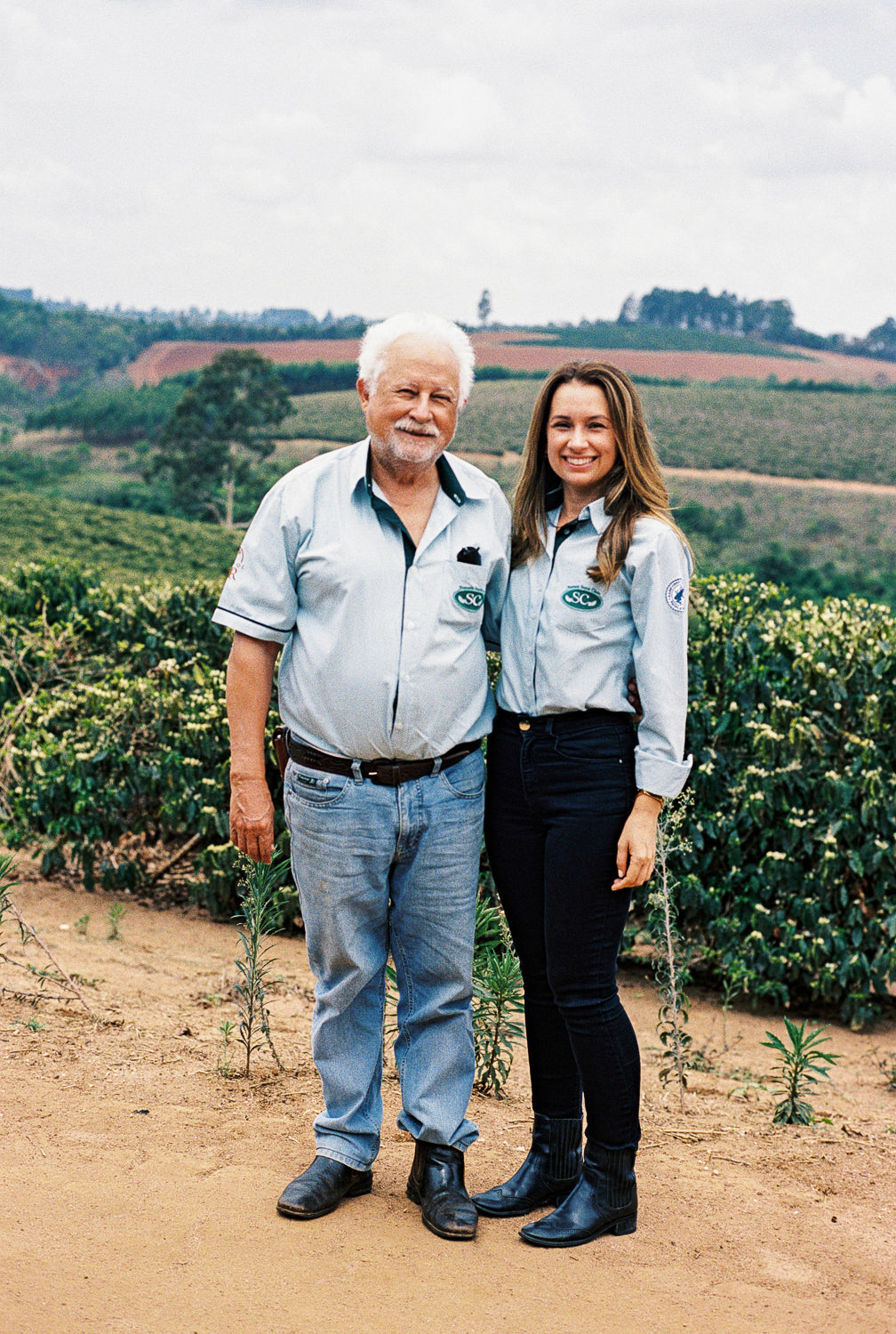
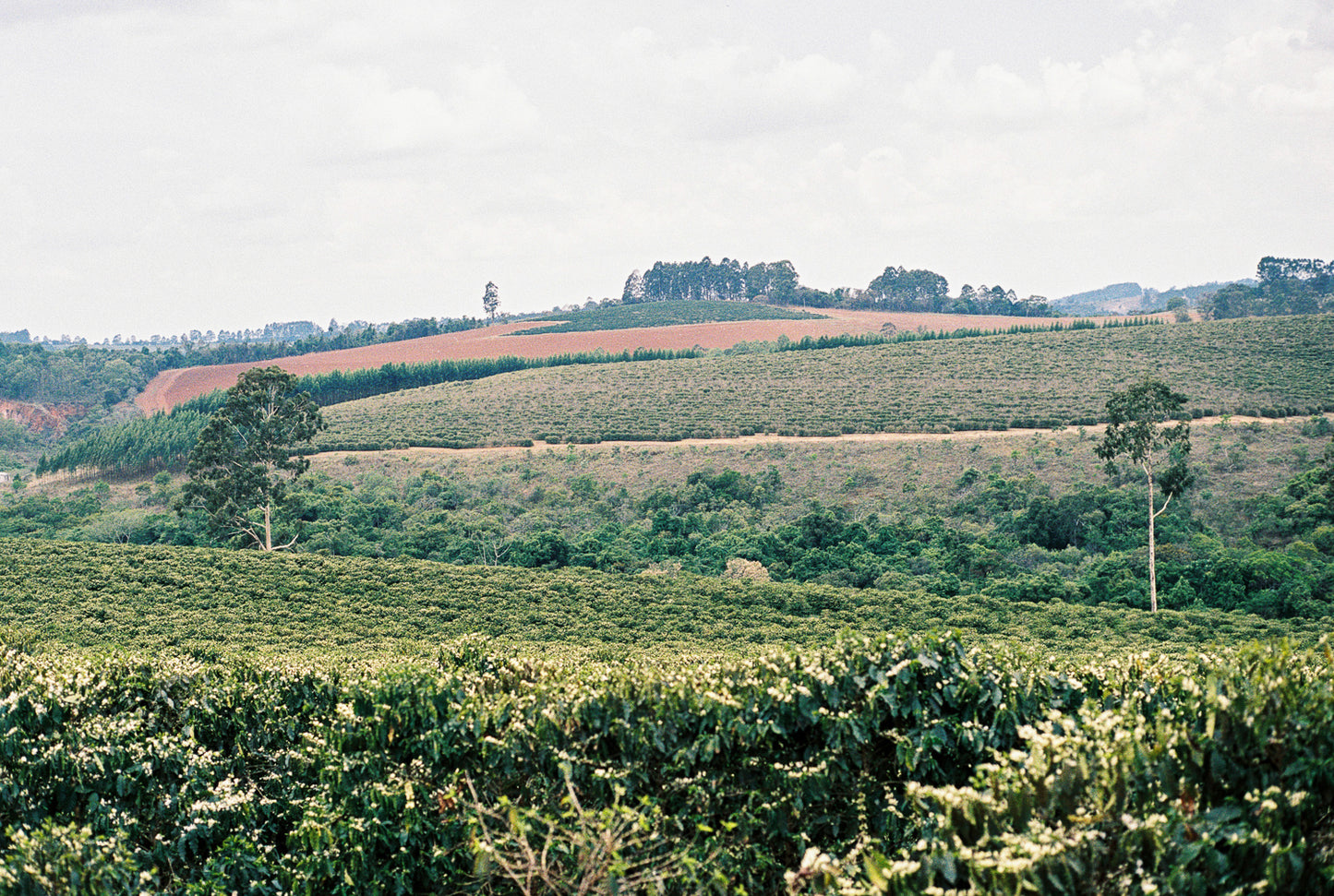
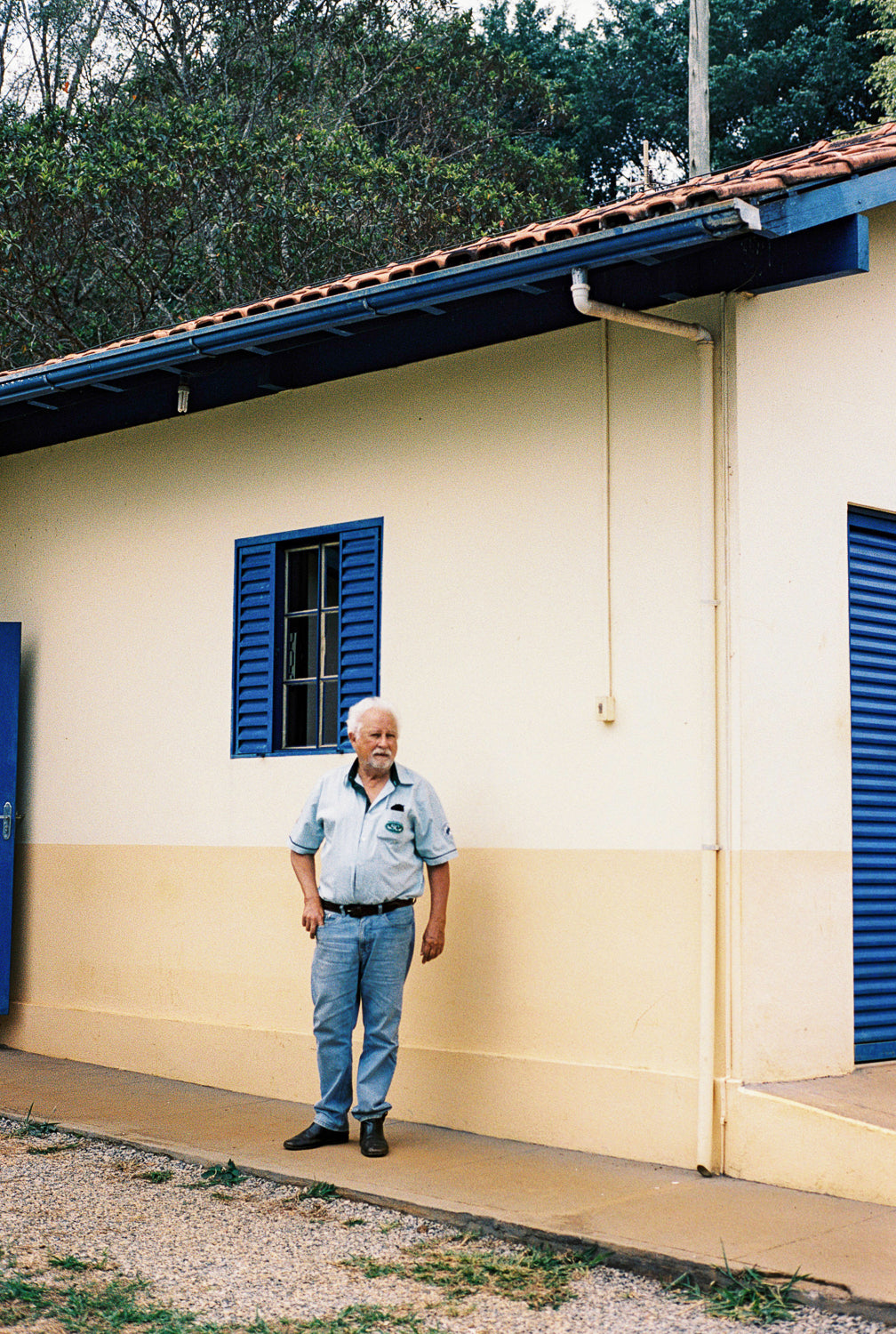
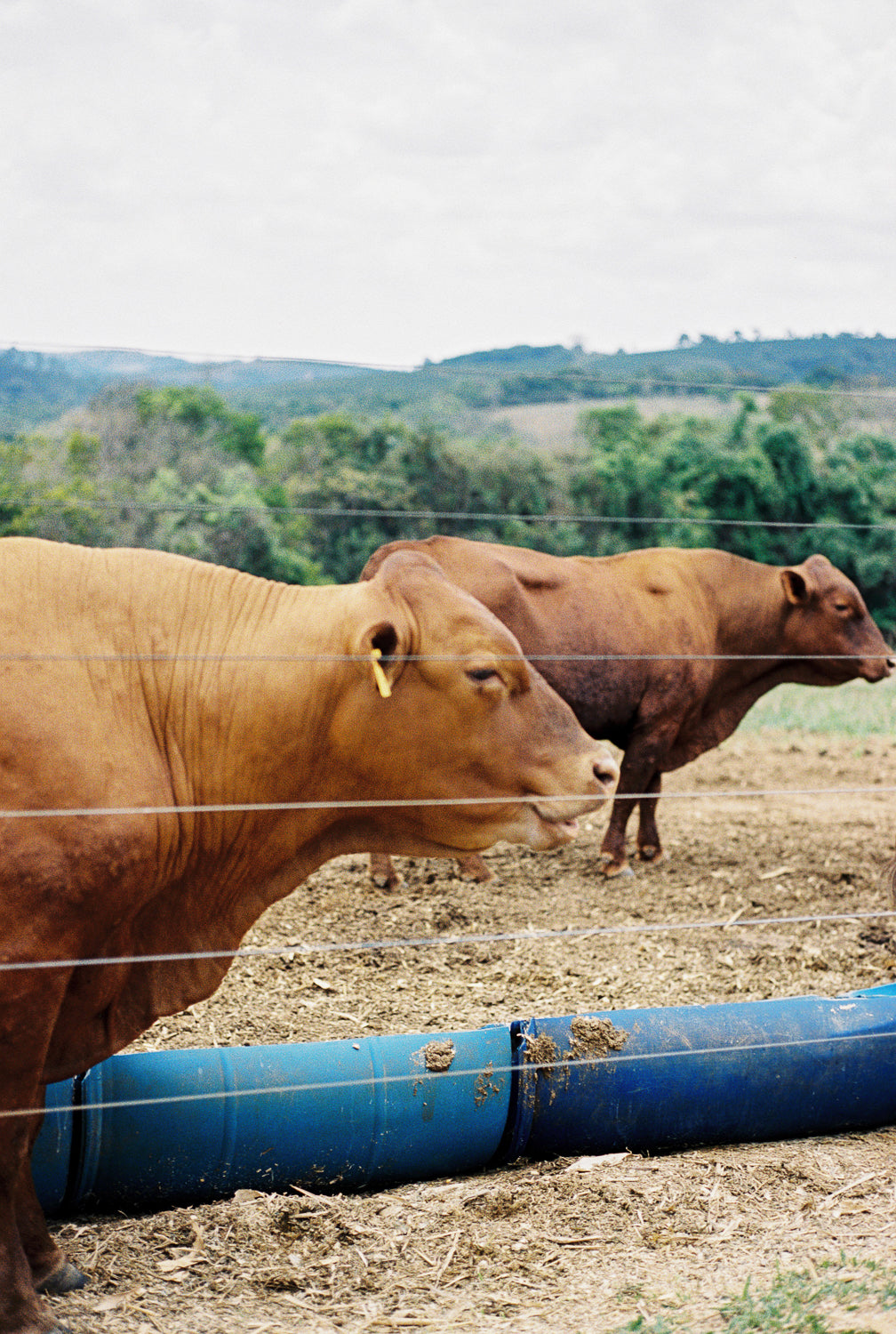
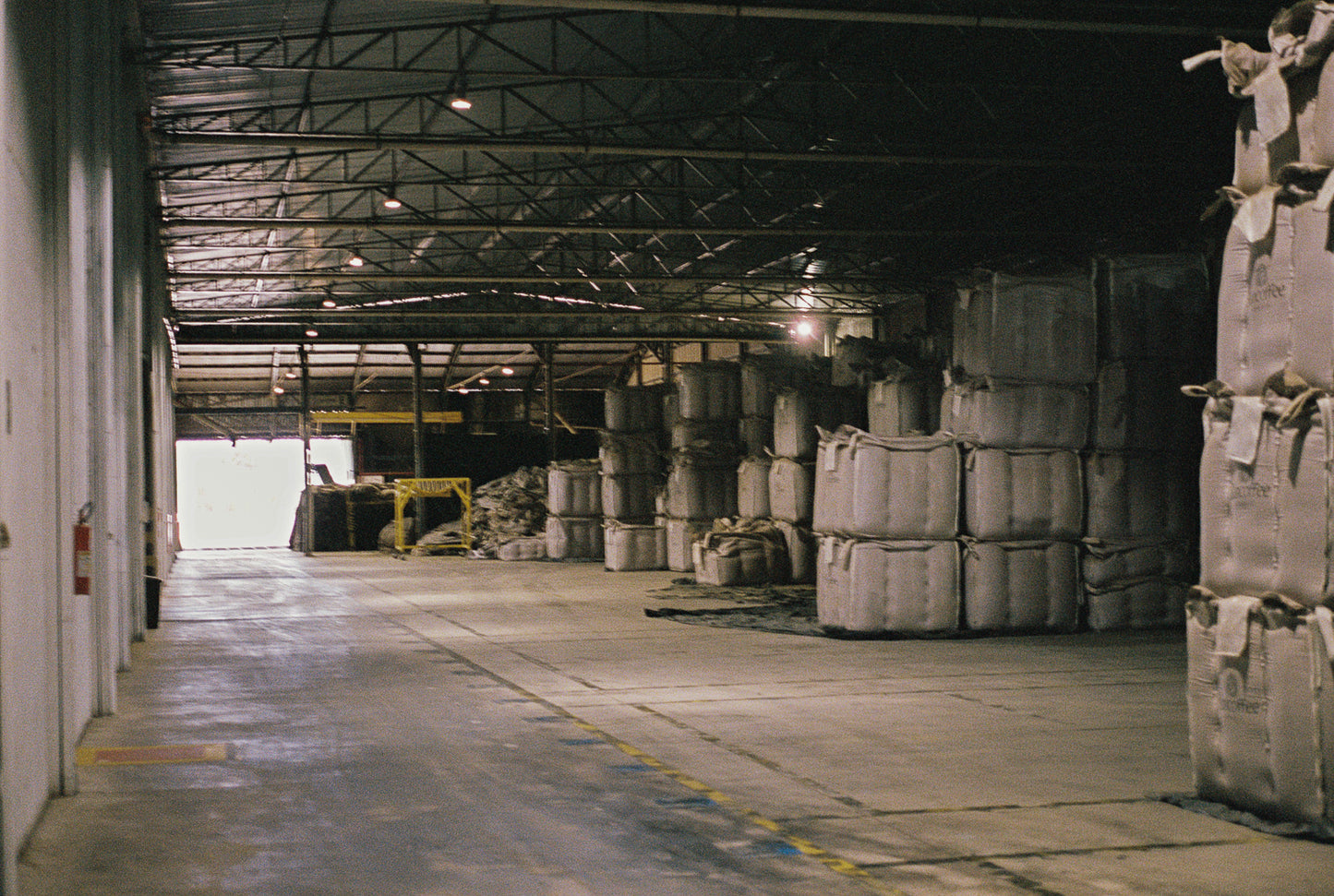
Price Transparency
We paid an FOB price of $3.49/lb for this coffee, which is 175% of the Fairtrade minimum price. Find out what this means here.
Santa Clara
Farm: Fazenda Santa Clara
Producer: Paulo Afonso de Resende
Purchasing relationship: 5
years
Region: Campo das Vertentes, Oliveira, Minas Gerais
Altitude: 1060-1090 masl, 20.8°S
At a very young age, Paulo Afonso de Resende witnessed the production of coffee, when he was observing his father working in the fields in order to provide for the family. After a long and successful career as an engineer in Belo Horizonte, Paulo Afonso purchased some land in 1993, bought a bunch of coffee seeds, and started from scratch in an area where no one would grow coffee back then. When he had the soil analyzed, they told him he was crazy to plant coffee there. But he kept going, planted five hectares of coffee, and thus started a new chapter as a coffee grower, leading him back to his childhood memories. By starting Fazenda Santa Clara, Paulo Afonso fulfilled a dream of his. And he has been on the farm for more than 30 years now. Paulo Afonso jokes that he bought the fazenda to retire after his career as an engineer. Turns out he still works very hard every day—though with a whole lot of passion.
As he began planting his first plots, he did not have much prior knowledge in agriculture. The support of agronomists and other experts as well as the experience of his employees were crucial. Without good teamwork and organization, his endeavor would have failed immediately. Paulo Afonso says: «If you don’t have a good team, you can do nothing». Over the years, Fazenda Santa Clara has made a name for itself and today, the farm is well-recognized in the region and beyond for producing high-quality coffee using sustainable farm practices. With his experience, Paulo Afonso now is a mentor for other producers at a Sancoffee impact program.
The region of Campo das Vertentes is situated between two important water basins in Minas Gerais state. Thanks to the fertility of the soils and the abundance of water, agriculture arrived soon after the first settlers did. Coffee cultivation in this area can be traced back to 1860. Besides coffee, Fazenda Santa Clara also holds animals, produces honey and grows lots of other produce. The farm is pretty much self-sufficient, with salt being the exception, Paulo Alfonso jokingly mentions.
At Santa Clara, they work based on facts: They use soil analysis and precision agriculture, measure every lot and take detailed notes of every step taken. This helps them understand the challenges they're facing so they can take action, for example improving the root system of the plants in order to deal with drier weather.
We visited the farm in late 2024 along with our sourcing partner Sancoffee. Paulo Afonso and his daughter Lilian explained to us every step of the production and took us on a tour around the farm, which is quite large compared to most other farms we work with—though still not that big for Brazilian standards. Read up on our visit over here.
Sancoffee Brazil
A cooperative and green coffee exporter who is deeply rooted in the region, Sancoffee puts an emphasis on supporting growers to produce high-quality coffee in a consistent and responsible way. Just like us, they rely on long-term relationships. We signed our first contract with Sancoffee in late 2021 and have bought tonnes of coffee through them since. We have met several times over the years and visited each other both in Switzerland and in Brazil. It certainly feels like we have been working together for much longer already.
In 2020, Sancoffee, a certified B Corp, measured and compensated the CO2 emissions of their warehouse and offices and became the first CO2-neutral coffee cooperative of the country. They didn't stop after that and carried out a project to analyze the emissions on two of the coffee farms they work with. Both farms, a small one and a bigger one, turned out to be CO2-negative, meaning they absorb more CO2 than they emit. They repeated the analysis for the remaining 18 partner farms and today, all of them—including Fazenda Santa Clara—are CO2-negative. The calculations include coffee cultivation, processing, packaging, storage as well as transportation to the port and were verified and certified by an independent, European company.
Brazil
Though there are many smaller farms in Brazil as well, the country is home to some of the world’s biggest coffee (and other) farms. Though we may not buy from the true mega farms, the ones we have been working with over the last couple of years are definitely bigger in size than the average coffee farm we buy from in other producing countries.
Coffee is often harvested by machines in Brazil. While this may sound less romantic than hand-picking, there is no reason to avoid mechanically harvested coffees at all. When the machines are used properly, these coffees can taste just as good as hand-picked coffees. When we visited Fazenda do Salto, farmer Otávio showed us the harvesting machines and explained to us how they work in detail. He also elaborated on how they have to check and adjust the harvesters’ settings every day to make sure the coffee plants do not suffer from the process.
While a human coffee picker can distinguish between ripe, almost ripe and overripe coffees cherries, mechanical harvesters are not able to do so in detail. Therefore, sorting the coffee afterwards is crucial. In Brazil’s mechanized coffee industry, this step as well is done by machines to a large extent. So are drying the coffee after processing with mechanical dryers or transporting the coffee from one machine to the next, for example for milling it after drying.
On Brazil’s large-scale farms, a higher degree of automation is required to manage production efficiently. But let’s be honest: Picking coffee by hand is some of the most taxing and strenuous labor there is in the coffee industry (and beyond). It comes as no surprise that in many coffee growing regions, farmers find it more and more difficult to find seasonal workers for this job. We believe it’s a good thing, if jobs which understandably less and less people want to do can be partly replaced by machines.
Another noteworthy peculiarity of Brazil as a producing country is the Forest Code. Brazilian environmental law requires farms to set aside a certain percentage of their farm area as Legal Reserves with the goal of creating sustainable use of resources and restoration of native vegetation and biodiversity. This land, which may often comprise 20% of a farm, cannot be used to grow any crops on. The percentage required is defined by the biome in which the farm is located, e.g. coffee farms close to the Amazon have to reserve much more of their land for conservation. While this regulation won’t reverse climate change, we believe there is need for more laws enforcing the protection of the environment, forcing big corporations to do their part. We are happy to work with coffee producers who put aside much more of their land as conservational reserves than they have to according to the law.
Brew Recommendation
Brew ratio 1:2.5
Coffee: 18.5g in / 46g out
extraction time 28s






